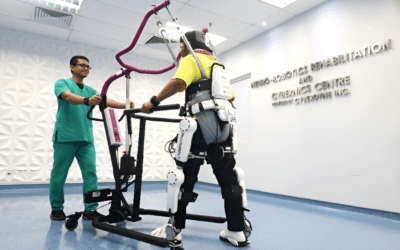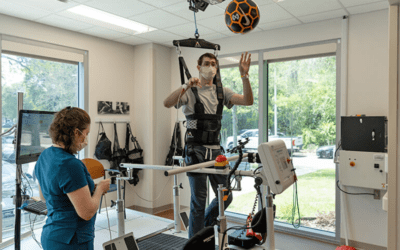Fasting, the deliberate abstinence from food for a set period, has garnered significant attention in recent years for its potential scientific benefits.
Fasting can positively affect health, such as improved metabolic well-being, cellular repair, and longevity. It is essential to approach fasting cautiously, considering individual health conditions and seeking guidance from healthcare professionals.
- Intermittent fasting (IF) has benefits for brain ageing and neurodegeneration.
- It may protect mitochondrial function in the brain, liver, and skeletal muscle.
- I may enhance mitochondrial biogenesis and regulate mitochondrial dynamics.
- SIRT1 and SIRT3 are regulators involved in IF modulating mitochondrial function.
Types of Fasting

- Meal skipping is skipping a meal based on hunger level rather than following strict meal times without considering hunger signals.
- Embrace the 5:2 diet fuel your body with a regular amount of calories for 5 days and conquer the remaining 2 days with a calorie intake of 500kcal for women and 600kcal for men.
- Embrace the power of alternate-day fasting – abstain from eating for 24 hours, then savour one or more “feast” days to enjoy eating as much as your heart desires.
- Embrace the Eat-Stop-Eat diet, which involves committing to complete fasting for 24 hours at a time for 1 or 2 days a week.
- Embrace the 16:8 plan and take advantage of the 8-hour window to enjoy your meals and snacks at your convenience.
- Embrace the Warrior Diet and conquer your goals by fasting for 20 hours each day and nourishing your body with all the recommended food within a 4-hour window. Unleash your inner warrior!
Boost Your Metabolism with Fasting:
One key benefit of fasting is its potential to enhance metabolic health. Research indicates fasting can improve insulin sensitivity, burn fat, and regulate blood sugar levels. These effects may have profound implications for individuals dealing with conditions like diabetes and obesity. By modulating key metabolic markers, fasting may contribute to better managing and preventing metabolic and neurodegenerative disorders.
Cellular Renewal Through Fasting: The Power of Autophagy:
Fasting triggers a fascinating process called autophagy, wherein cells remove damaged components and recycle them. This cellular “spring cleaning” promotes overall cellular health and longevity. Autophagy is crucial for the body’s ability to repair and rejuvenate, and fasting seems to stimulate this process, potentially contributing to a healthier cellular environment.

Sharpen Your Mind: Fasting for Optimal Brain Function:
Fasting is attracting more attention due to its potential impact on brain health. Research suggests fasting could boost the production of brain-derived neurotrophic factor (BDNF), a vital protein for nurturing neuron growth and maintenance and crucial for cognitive function. Through stimulating the production of BDNF, fasting may offer neuroprotective advantages, potentially lowering the risk of neurodegenerative disorders and enhancing overall brain function.
Intermittent Fasting: A Simple Way to Improve Your Health:
Intermittent fasting (IF) has been extensively studied for its beneficial effects on lifespan and age-related diseases through the regulation of metabolic pathways. Research has consistently shown that IF can prevent brain ageing and neurodegeneration, although the precise mechanism behind these effects remains unclear.
Fasting can improve mitochondrial function and promote better brain health, potentially benefiting conditions like Alzheimer’s, Parkinson’s, and Huntington’s. It triggers cellular stress responses and signalling pathways, ultimately promoting energy metabolism and reducing oxidative stress.
Protect Your Heart with Fasting:

Fasting has been linked to improvements in various cardiovascular risk factors. Research indicates fasting can reduce inflammation, blood pressure, and cholesterol levels. These effects collectively contribute to better heart health and a decreased risk of cardiovascular diseases. Incorporating fasting into a lifestyle may be a proactive measure for maintaining cardiovascular well-being.
Slow Down ageing: The Longevity Benefits of Fasting:
Some studies suggest fasting could influence ageing-related cellular processes, potentially extending lifespan. Fasting may slow age-related processes by modulating oxidative stress and inflammation. Approach fasting cautiously, as individual health conditions, medications, and other factors can significantly impact its effects despite promising scientific findings.
Key Takeaways:
Fasting has a rich history in human culture and is deeply rooted in many traditions and faiths. Current research into the positive impact of fasting on body mass control and overall health has sparked a surge in its practise. Numerous studies are now exploring the effects of intermittent fasting on various health conditions, with evidence suggesting that this dietary approach may delay or prevent the onset of diseases like neurodegenerative disorders. Excitingly, several studies have highlighted the beneficial impact of intermittent fasting on brain health and function. However, seeking guidance from a healthcare professional is crucial to ensure that fasting is safe and suitable.



